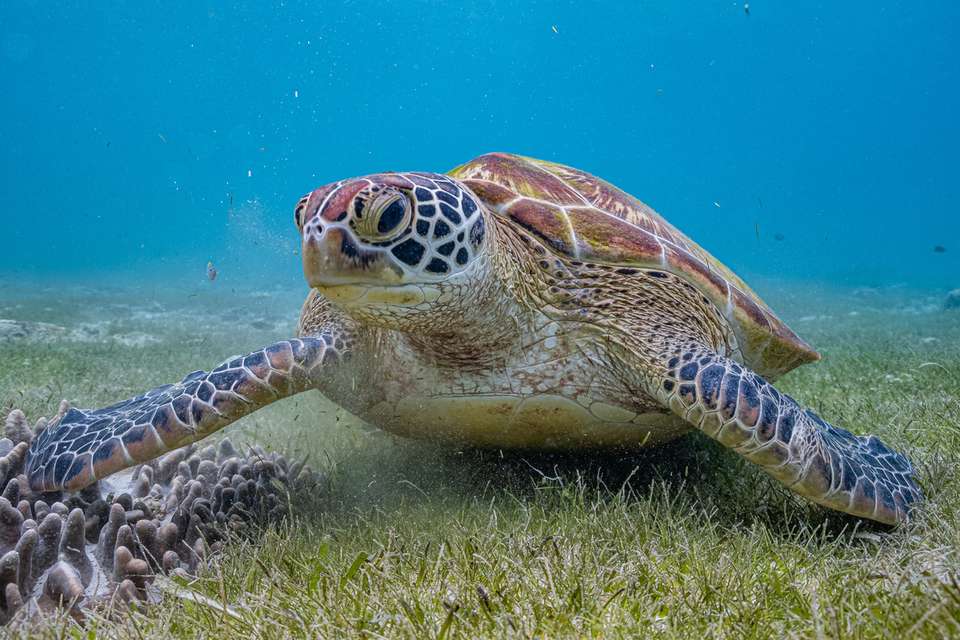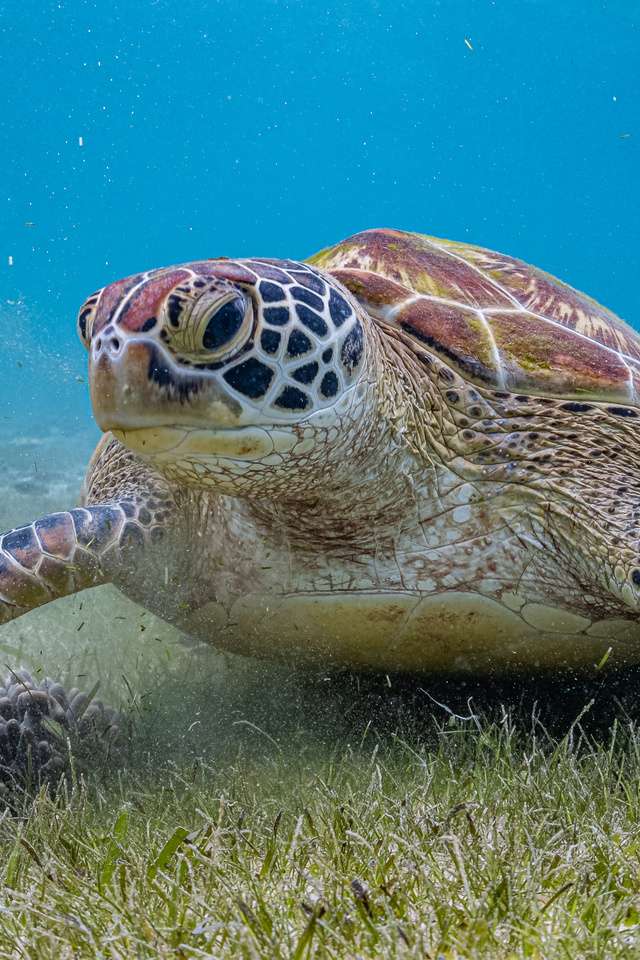Find out more about the THE Impact Rankings
We participate in and coordinate a range of initiatives, and activities that align to SDG 6 Clean Water and Sanitation. Explore the information on this page to find out more.
Some of the recent news stories that align with SDG6 Clean Water and Sanitation:
We work consciously to improve the sustainability of our campuses and surrounding areas. Please read more for examples of how we work to achieve this.
Free drinking water is accessible at various locations across all CQUniversity campuses. Drinking fountains are conveniently placed for easy access by both staff and students. For specific locations of these fountains, please refer to this map. To reduce environmental impact, we strongly encourage the use of reusable water bottles and discourage single-use plastic bottles. Staff and students are welcome to bring their own reusable bottles or purchase a CQUniversity-branded bottle available at the campus bookshops.
Being the largest regional university in Australia, CQUniversity’s footprint covers land and property that sustains an interesting mix of native and non-native species. Our Sustainability Framework guides our actions to ensure that all natural watercourses and riparian bushland are preserved as much as possible to their original state.
CQUniversity campuses range from inland dry arid conditions to wet tropical lush rainforests to city landscapes. Our multiple locations harbour various microclimates that support thriving biodiversity with a range of flora and fauna. CQUniversity has constructed building and structures around our rich biodiversity and in some situations have rebuilt and landscaped the surrounding to naturally blend into the existing topography and vegetation.
Our gardens and landscapes are developed using native and water-conscious plants that support the local fauna and thrive in the local environmental conditions. We aim to expand the use of native species for sustainability and support of local fauna. View our Sustainability Framework for more details
Bringing Nature Back to Frenchman's Creek- This ongoing project allows participants to study local flora and fauna, control exotic weeds and support bush regeneration by planting native plants.
Konomie Island Revegetation- Working alongside the Capricorn Conservation Council, Woorabinda Aboriginal Shire Council Rangers and the Konomie Island Environmental Education Centre P&C (KIEEC), the CQU students were able to further their knowledge and understanding of protecting and conserving biodiversity, and how to collaboratively partake in caring for Country. Students assisted with exotic weed removal and disposal, deep planting and revegetation of sustainable native species, and broadened their knowledge how to create sustainable ecosystems, and protect native flora and fauna.
Woorabinda- A community event held at Horseshoe Lagoon in Woorabinda included native tree-planting, water quality testing, birth watching, and learning about water life and creatures. This event was run in conjunction with the Woorabinda Rangers, Greening Australia, BMA, Darumbal Rangers, Birdlife CQ, and the Department of Environment and Science.
CQUniversity owns and leases a wide range of land and built environments including sports grounds, buildings, accommodation, and office blocks. Our built environment aims to be resource-efficient, operationally cost-effective, and provide improved environmental, economic, and social benefits to students, staff, and surrounding communities.
CQUniversity has been actively growing with new buildings and refurbishments throughout Australia which are designed in accordance with the Green Building Council of Australia (GBCA) frameworks in building design for all future developmental work. New builds and refurbishments are installed with 5-star water-efficient equipment.
We are continually introducing sustainable features into buildings and grounds such as water harvesting, solar panels, and strategic shading installed in new buildings. We actively check and adjust irrigation systems to minimise wasted water. View our Sustainability Framework for further details.
In 2024, CQUniversity used just under 200ML of water. This is a combination of town water and harvested sources, with town water making up around 90% of the total. Water uses on our campuses include irrigation of sports fields, landscaped lawns and gardens, research and teaching activities, and general consumption for drinking and cleaning purposes.
We are committed to reducing our water use and dependency on town water by installing water tanks with a capacity of 200,000 litres and electric pumps across the campus to sustainably collect and store rainwater. This will offset the usage of council-supplied potable water.
We are proud of the connections we have in our communities and the work we contribute to building a sustainable future for our regions
Four free workshops were run across Victoria by the Female Farmers of the Future program to link local producers with the latest technology for future drought-proofing and preparedness.
Water expert, Dr. Adam Rose, provides expert commentary on the Fitzroy River.
University is a key partner in the Fitzroy Partnership for River Health which provides free educational sessions.
BROLGA- Designed for Indigenous students in years 5-12, the BROLGA program is a mix of on-campus and 'on country' learning experiences that incorporate elements of community, country, and culture. As part of this program, Dr. Adam Rose facilitates a session on water management. For more information email [email protected]
Slow the Flow- this initiative highlights the importance of the flow of water from rivers to reefs and the impacts a slower flow would have on the environment.
Rockwood Weird- As part of the Rockwood Weir Project, CQUniversity, in collaboration with Fitzroy Basic Association and Sunwater, prepared a monitoring program that enables the quantification of direct water quality impacts resulting from decayed vegetation and facilitated agriculture.
Fitzroy Partnership for River Health - CQUniversity has members on the Independent Science Panel providing technical and scientific advice to drive research to support the continuous improvement of the Fitzroy Basin Report Card.
Drought Preparedness- The Decide and Thrive project is a joint initiative between CQUniversity, the University of New England, and the CSIRO that focuses on drought-preparedness.
Precision Horticulture- CQUniversity’s Precision Horticulture team is focused on improving the productivity and profitability of Queensland’s major horticultural commodities. Specialist research skills within the team include drone-based crop sensing for factors including crop water status.
High-Value Tropical Cropping- CQUniversity is working with industry to design viable farming systems that can survive the increasingly regular extreme weather events – be it drought, torrential rainfall or heatwaves – while meeting the community’s expectations to minimise impact on the land and water.
CMERC has been established to work with coastal industries and communities to develop practical and sustainable solutions for our unique coast and marine environments.


CQUniversity Australia is a trading name of Central Queensland University
ABN: 39 181 103 288
RTO Code: 40939
CRICOS: 00219C
TEQSA: PRV12073